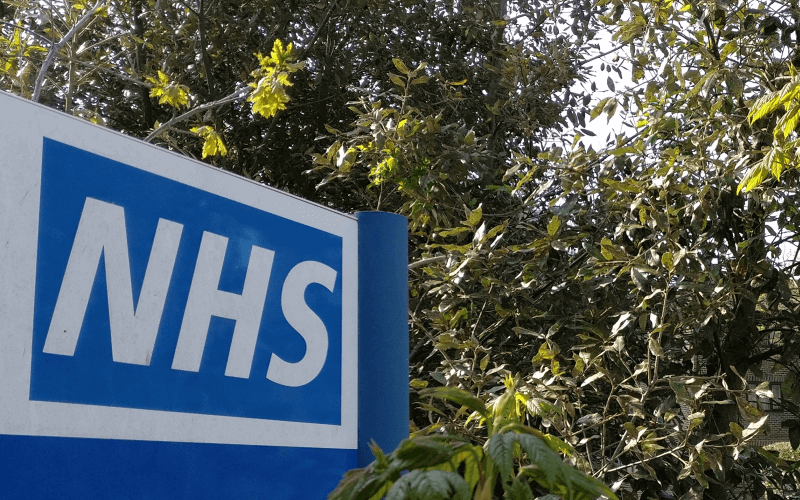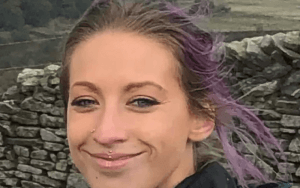Two NHS organisations continued to support a controversial scheme aimed at service-users in severe mental distress, despite being warned by police that dodgy data had been used to persuade other forces and health trusts to adopt the programme.
The multi-agency Serenity Integrated Mentoring (SIM) scheme is believed to have been rolled out to nearly half the mental health trusts in England.
But disabled activists have warned that it is based on coercion and denial of potentially life-saving support and is causing some service-users to live in fear of arrest or prosecution when they are in mental health crisis.
They have called for an immediate halt to the use of the SIM scheme, which they believe is unethical, unlawful and unsafe. They also want an independent investigation into its use.
Emails sent by Hampshire police and released under the Freedom of Information Act show that the force raised repeated concerns in 2018 about the data used to promote the scheme.
The force has now confirmed to Disability News Service that it warned both Isle of Wight NHS Trust and Wessex Academic Health Science Network (AHSN) – set up by NHS England – about its concerns in 2018.
Under the leadership of a police officer and a mental health professional, SIM aims to work with users of mental health services – often those at high risk of suicide and self-harm – who have not committed a crime but are seen as “high intensity users” of emergency services.
This can involve withholding assessment and treatment, and the scheme gives police officers a key role in making clinical decisions when service-users are in crisis.
SIM has received high-profile, high-level backing from NHS England, and in 2016 it was adopted by the NHS Innovation Accelerator programme, and then selected for “national scaling and spread across the AHSN Network” two years later.
Earlier this month, Disability News Service reported how Paul Jennings, the former police officer who devised the SIM scheme, suddenly shut down the High Intensity Network (HIN) that he and his wife set up to support NHS trusts and police forces that sign up to SIM, apparently as a result of the release of the Hampshire police emails.
In 2018, a series of emails from Hampshire police warned Jennings – who denies any wrongdoing – and organisations he was working with that the way he had used “erroneous” data to promote his scheme was “misrepresentative and not ethical”, and that this data was “not remotely accurate in a number of ways, and is then being presented in a way that is just not ethical”.
But despite these concerns, Isle of Wight NHS Trust and Wessex AHSN continued to support the use of SIM.
Last year, the website for The AHSN Network – representing AHSNs across England – was continuing to praise the SIM scheme, claiming that it “can bring significant breakthroughs in the lives of people whose behavioural risks are likely to result in them entering the criminal justice system or even worse, dead from accidental suicide”.
It also claimed that “the best results so far have seen crisis calls and demand reduced by up to 90 per cent”.
AHSNs were set up around the country by NHS England in 2013 to “spread innovation at pace and scale” and aim to link the NHS with academic organisations, local authorities, the third sector and industry.
The grassroots, user-led mental health group Recovery in the Bin said this week: “It’s readily apparent the NHS is incapable of investigating its own failures in regard of SIM/HIN.
“Only an independent investigation will address a culture of abuse, disbelief, and cruelty towards mental health service-users, attitudes which clearly played into the lack of scrutiny for the evidence base and ethical standards of the network.”
This week, the Royal College of Psychiatrists (RCP) backed SIM service-users and mental health activists, including those from the StopSIM coalition, who have raised concerns about SIM.
It warned how some service-users placed under SIM had been prosecuted and even imprisoned after continuing to self-harm, attempt suicide or report suicidality.
And it called for NHS England to launch an investigation into AHSN Wessex’s response to the warnings from Hampshire police.
RCP said in a statement: “We acknowledge that it has been patients subject to these approaches who have had to do the work of identifying concerns.
“There will be some difficult learning here; any review must examine why professional frameworks did not identify or act on these concerns.”
NHS England has written to mental health trusts across England, calling on them to review their use of the scheme.
But it has so far refused to say if it was concerned by the new information from Hampshire police, or if it will now order an independent investigation into the use of SIM-type schemes across the NHS.
By noon today (Thursday) it had had nearly 16 days to respond to these questions.
Isle of Wight NHS Trust, which provides acute, community, mental health and ambulance services on the island, had also failed to comment by noon today, 16 days after it was first approached to explain how it responded to the warnings from Hampshire police in 2018.
NHS Hampshire, Southampton and Isle of Wight Clinical Commissioning Group had also failed to comment by noon today, a week after it was approached for a comment.
But in a statement released yesterday, Wessex AHSN did comment.
It said that it had not been involved in setting up SIM, which it said was developed by Hampshire Police and the Isle of Wight NHS in 2013 as a pilot project.
A Wessex AHSN spokesperson said: “In 2016, the AHSN was commissioned by Hampshire Police and the Isle of Wight NHS to analyse data collected by them on that small pilot project.
“The AHSN analysed that data but was not requested to audit the data. No concerns were raised at that time by Hampshire Police or the Isle of Wight NHS about that data.”
He said Wessex AHSN did not become aware of concerns about SIM until mid-2018.
He said: “It is not for the AHSN to comment on the veracity of and usage by Hampshire Police Force of its own data.
“Isle of Wight NHS has not made the AHSN aware of any concerns about the pilot data.
“In any case, at this point – the first half of 2018 – thinking about the SIM model had evolved considerably, in particular in London, where a number of partners had come together to understand the potential of the model and further develop it.
“From late 2017 onwards, NHS RightCare commissioned the national roll-out of SIM through to November 2018; and NHS England then commissioned the AHSNs from April 2018 through to March 2020, when that national commission came to [an] end.”
He added: “This is a critical and challenging area of care and the AHSN welcomes actions to review services for high intensity users.
“Our involvement in SIM ended in March 2020. We welcome the review initiated by NHS England and Improvement.”
A note from the editor:
Please consider making a voluntary financial contribution to support the work of DNS and allow it to continue producing independent, carefully-researched news stories that focus on the lives and rights of disabled people and their user-led organisations.
Please do not contribute if you cannot afford to do so, and please note that DNS is not a charity. It is run and owned by disabled journalist John Pring and has been from its launch in April 2009.
Thank you for anything you can do to support the work of DNS…

 DWP helped cause mental distress of poverty-stricken benefit claimant who took her own life, says coroner
DWP helped cause mental distress of poverty-stricken benefit claimant who took her own life, says coroner DWP figures on total cost of disabled people who cannot work are ‘chilling’ echo of ‘useless eaters’ propaganda
DWP figures on total cost of disabled people who cannot work are ‘chilling’ echo of ‘useless eaters’ propaganda Research links increase in ill-health to rising benefit claims, just as government prepares ‘catastrophic’ cuts
Research links increase in ill-health to rising benefit claims, just as government prepares ‘catastrophic’ cuts